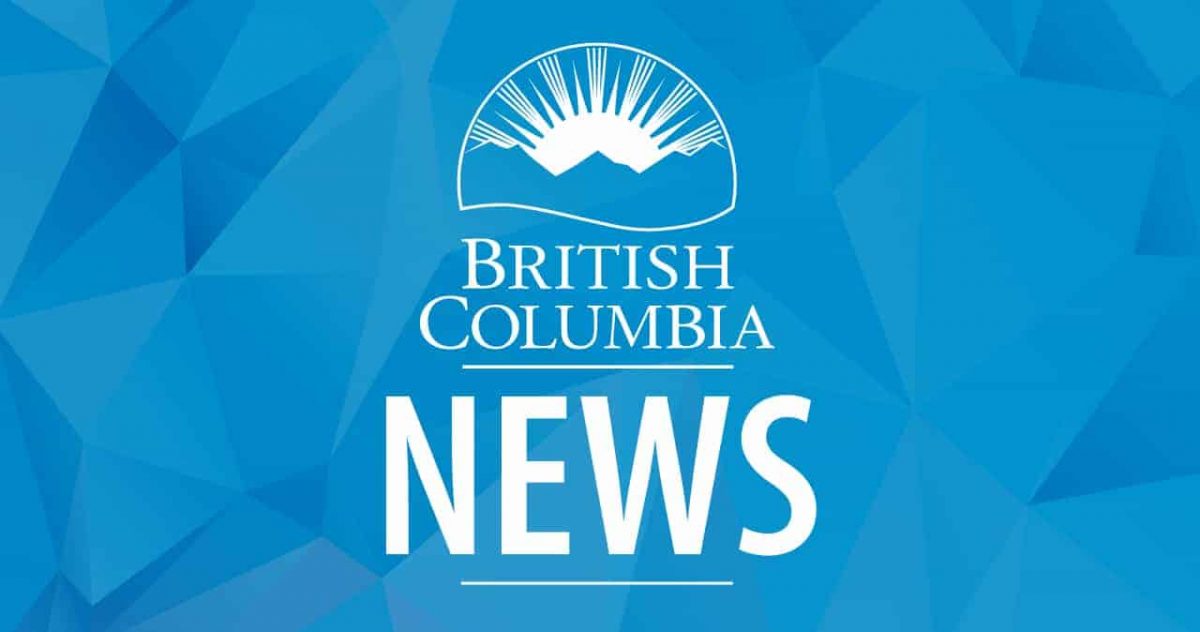
New members appointed to B.C. Climate Solutions Council
Denni Clement is from ʔAq’am, a Ktunaxa Nation community located in the Kootenay region. She is a facilitator, planner, researcher, community engagement, climate resilience and sustainability specialist. Denni led the creation of ʔAq’am’s comprehensive community plan from 2009 to 2011 and has contributed to ongoing planning efforts since. Working with the Fraser Basin Council, she is a lead author for the B.C. chapter of the national assessment on climate change titled, Canada in a Changing Climate. Denni is a member of the Pinna Sustainability team and led Indigenous engagement for the University of Victoria’s Climate and Sustainability Action Plan. She currently serves as the Coastal First Nations-Great Bear Initiative climate action peer network lead, supporting community co-ordinators to advance climate action in their communities. Denni holds a Bachelor of Arts with distinction from the University of Victoria and is a dancer performing regularly with Indigenous women’s groups in Victoria.
Linda Coady is president and CEO of the Council of Forest Industries, an industry trade association representing B.C. forest companies that produce wood for construction, pulp and paper and bioenergy. Prior to this, Linda was the executive director of the Pembina Institute, a Canadian non-profit environmental think tank on climate and energy issues. Her previous roles have also included chief sustainability officer for Enbridge Inc., vice-president of sustainability for the Vancouver 2010 Winter Olympic Games, vice-president of the Pacific region of World Wildlife Fund Canada, and vice-president of Environmental Affairs for the BC Coastal Group of Weyerhaeuser Canada and MacMillan Bloedel Ltd. Linda has been a member of the Climate Advisory Body to the Government of Alberta, and a member of Canada’s Net-Zero Advisory Body, which provides independent advice to the federal government on meeting requirements under Canada’s Net-Zero Emissions Accountability Act.
Ashley Duncan is the president of the BC Insulators Local 118, and the membership development co-ordinator for the International Association of Heat and Frost Insulators & Allied Workers, which represents more than 6,000 members across Canada and 25,000 members across North America. As the original “green trade,” BC Insulators have used energy audits to retrofit mechanical systems in buildings across Canada, with the goal of lowering costs and reducing the environmental footprint. Ashley previously worked as the vice-president and sustainability co-ordinator for the BC Insulators. She now works with the International Association, helping with energy audits across North America.
Mahmudur Fatmi is an assistant professor in civil engineering at the University of British Columbia Okanagan. His research area is in sustainable transportation modelling, developing innovative models and simulation tools to help transportation and land use planning, and infrastructure investment decision-making. Mahmudur’s research results provide insights and input for equitable low-cost and sustainable travel options, and to decarbonize the transportation sector. He is associate editor of the Journal of Transport and Land use, paper review co-ordinator of Transportation Research Board’s standing committee on the Effects of ICT on Travel Choices, and vice-president of the Canadian Transportation Research Forum. Mahmudur received his bachelor of science in civil engineering from the Bangladesh University of Engineering and Technology, and a doctoral degree in Civil Engineering from Dalhousie University in Halifax.
Matt Horne is the manager of Climate Mitigation at the City of Vancouver. He is responsible for the city’s Climate Emergency Action Plan, including the target of cutting carbon pollution in half by 2030. He has worked on climate change issues for over 20 years with the city, the Climate Action Secretariat, and the Pembina Institute. He’s had the opportunity to be an adviser on B.C.’s climate and clean-energy plans over the past decade, and is also an adjunct professor at Simon Fraser University.
Madeleine McPherson is an assistant professor in the department of civil engineering and the associate director of the Institute for Integrated Energy Systems at the University of Victoria. As the principal investigator of the Sustainable Energy Systems Integration & Transitions Group, Madeleine and her team develop models to explore the integration of electrification and energy systems, and apply those models with stakeholders to co-create ways to shift away from fossil-fuel-based energy. Madeleine is a co-founder and executive member of the Energy Modelling Hub, which is convening a national dialogue between modellers and stakeholders around decarbonizing Canada’s energy system.
Nangkilslas, Trent Moraes is a Haida from Skidegate, Haida Gwaii. He is an elected member of the Skidegate Band Council and is the deputy chief councillor. He spent a decade in administration as the director of Housing, Lands & Energy for the Skidegate Band Council. Trent helped create and maintain an energy portfolio in Skidegate and for Haida Gwaii. He helped the Skidegate Band Council study the needs of the community and islands, educated the public on the emerging technologies and energy-efficiency strategies available, and invested in solar hot water and solar photovoltaics for community and residential buildings. He is a member of the First Nations Home EnergySave Advisory, Indigenous Clean Energy Opportunity Electricity Table Advisory Group, First Nations Remote Community Energy Strategy Working Group, and current chair of the Aboriginal Capital Committee, Indigenous Climate Adaptation Working Group, and Indigenous Coastal Climate Coalition.
Freya Phillips is the senior energy specialist at the Regional District of Kootenay Boundary (RDKB), leading the district’s transition to a net-zero emissions future. She has created policies and programs, such as the climate action plan, with a focus on community engagement, climate mitigation and resilience. Freya has led projects like the Low Carbon Fleet Project and RDKB HomeSmart retrofit program, showcasing sustainable innovation in rural areas. She has more than 30 years of global experience in climate change and energy management, policy development, project management and engineering. Her extensive career includes diverse industry sectors and consultancy roles, providing her with a comprehensive understanding of environmental and climate challenges. Freya holds a bachelor’s of engineering (honours) from Monash University and is an accredited change-management practitioner.
